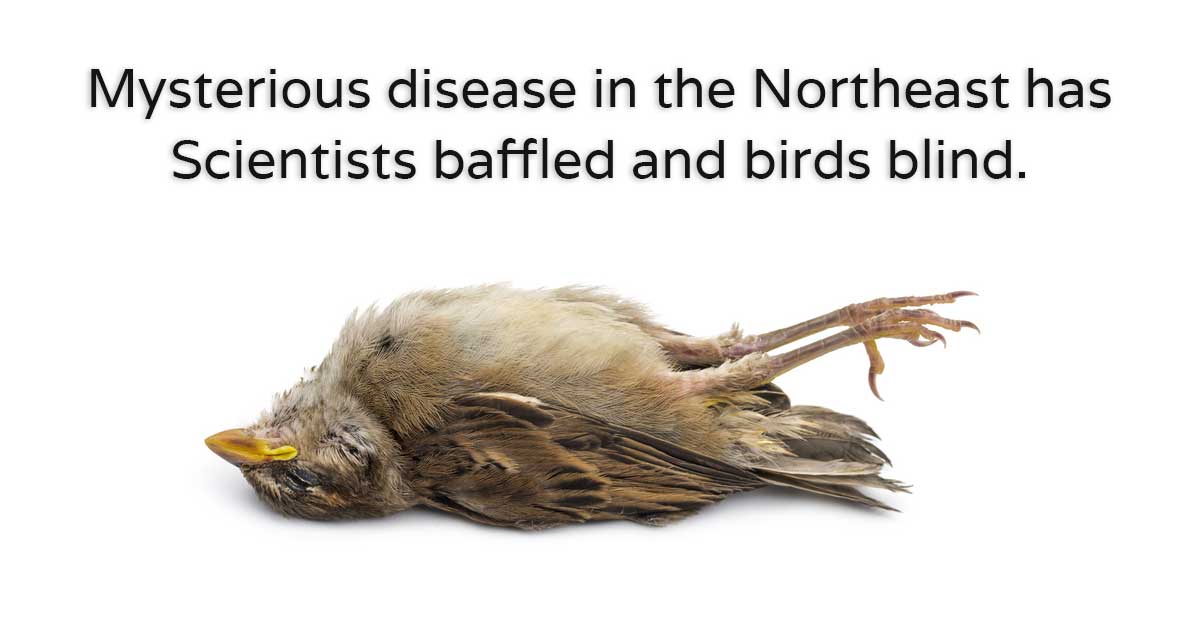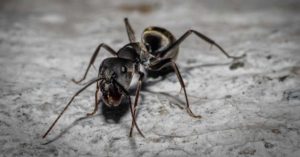
An unidentified disease is blinding and killing birds. The first reports occurred in May, and it is baffling scientists as it spreads up the east coast and westward.
The Washington Post described birds dying of an unknown condition in the D.C. Area. Since then, it has expanded along the east coast to also affect birds in West Virginia, Virginia, and Maryland, as well as spreading west to Ohio, Kentucky, and Indiana. Labs in each state are studying the situation.
Wildlife experts in Pennsylvania and New Jersey are staying alert for any reports in their states as the cases increase. Arrow Exterminating is also keeping abreast of the situation and monitoring reports.
What Is Happening To The Birds?
The first sign of the illness in the birds is that it affects their eyes. Bulging or swollen eyes were initially reported, but as the condition has been tracked, it has also been associated with crustiness around the eyes and even eyes that appear sunken in.
The condition appears to be neurological or to have neurological symptoms. The birds act disoriented, uncoordinated, and some act as if they can’t keep their heads up.
New Mexico wildlife officials also reported an unexplained and “alarming” number of bird deaths in September 2020, but the eye symptoms weren’t present. It is unclear if the two sets of widespread avian fatalities are related.
The Ohio Wildlife Division has reported finding starlings, sparrows, common grackles, blue jays, brown-headed cowbirds, and American Robins dead from or infected by this mystery disease. The Indiana Department of Natural Resources has also reported Northern Cardinals being affected.
The dead birds are being studied at the National Wildlife Health Center, Indiana Department of National Resources, University of Georgia Southeastern Cooperative Wildlife Disease Study, and the University of Pennsylvania Wildlife Futures Program. West Nile virus has been ruled out, but otherwise, the scientists are still unsure what is causing the disease.
What Is The Cause Of This Mystery Bird Illness?
One ornithologist is theorizing that cicadas could be a factor. In an interview with NPR, Brian Evans of the Smithsonian Migratory Bird Center in Washington, D.C., pointed out that the disease appeared at the same time as the emergence of Brood X cicadas.
Birds commonly eat cicadas and, in fact, Brood X – also known as the 17-year cicada – have a survival strategy of surfacing en masse so that more are around than predators can eat. This helps to ensure species survival. Dogs have been known to get sick from eating too many cicadas because it is not easy to digest the shells and exoskeleton.
Laura Kearns, a biologist at the Ohio Division of Wildlife, also mentioned a theory that the sick birds might have eaten fungus-infected cicadas. In the same areas where many sick birds have been found, so have cicadas with a fungus that rots their bodies. However, Kearns also noted that sick birds have also been found in areas without the cicadas… so it is not a firm link.
What Can Homeowners Do About This Bird Disease?
If birds with this condition are found in your area, and you have a birdbath, the first thing to do is to take down the bath for at least 7-10 days. Before setting the birdbath up again, it should be cleaned with a bleach and water solution and thoroughly rinsed.
If you find one or more dead birds that match this description, keep your pets and children away from them. Do not handle the birds unless you are wearing gloves – preferably disposable gloves that are discarded afterward. You may also want to call the state department of wildlife.
Arrow Exterminating Are the Pest Solution Experts
No matter the infestation – termites, carpenter bees, mice, rats, and more – the experts at Arrow can diagnose and treat the situation, providing the peace of mind your family needs. Call Arrow Exterminating to get started; contact Arrow Exterminating today.





